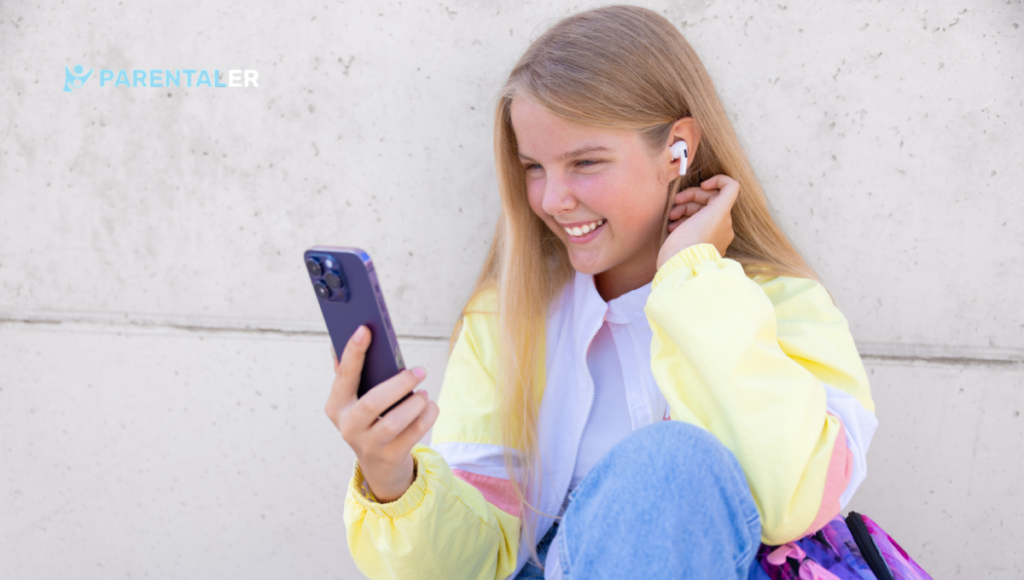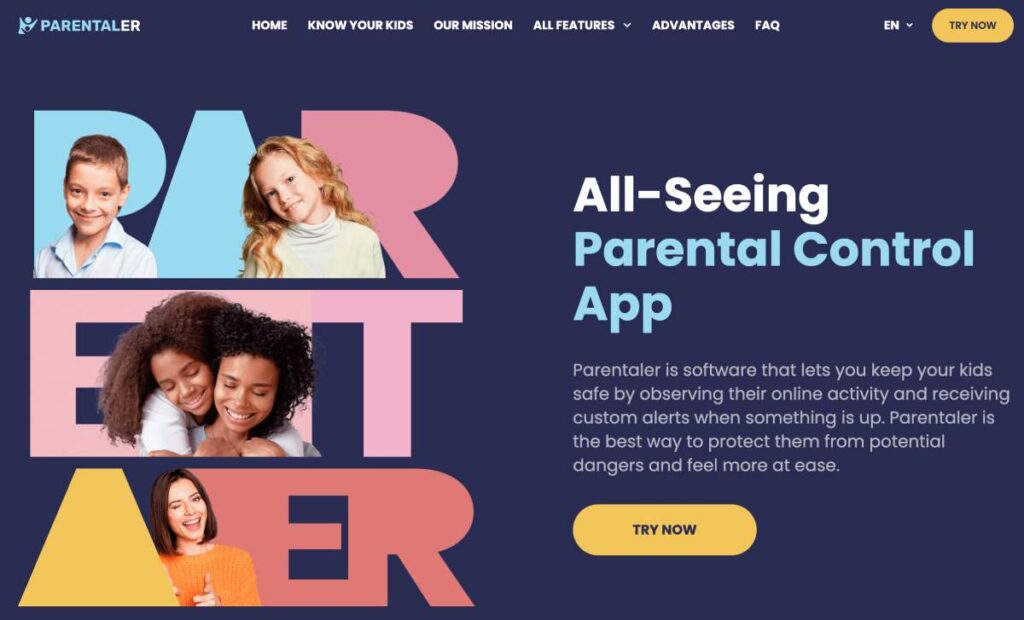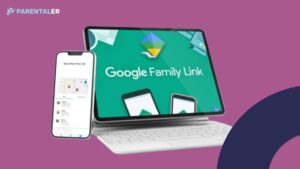

Social media has been one of the most significant technological advancements of our time, bringing people closer to each other and to the world around them.
However, while social media is a powerful tool, it can pose several risks to children, particularly if left unmonitored. In recent years, incidents of cyberbullying, online grooming, and exposure to inappropriate content have all increased, prompting parents to ask the question: should parents control their children’s activities on social media?
So, let’s explore the pros and cons of parents monitoring their child’s social media activity.

Reasons Why Parents Should Monitor Their Children’s Internet Use
The dangers of social media are numerous and evident, with research showing that social media harms children’s mental health.
Psychologists have linked excessive use of social media with anxiety, depression, and low self-esteem. Additionally, social media can be addictive, with social media addiction affecting 5-10% of young people.
The risks of social media extend beyond mental health, with cyberbullying and online grooming on the rise. In the UK alone, one in ten children has been the victim of online grooming.
Moreover, according to a study by the Pew Research Center, 59% of US teens have experienced cyberbullying or harassment online. The same study also found that 16% of teens said they had received explicit images they didn’t ask for.
As responsible parents, we must stay vigilant about our children’s online activities and promptly act when necessary. By actively monitoring their social media usage, we can effectively safeguard their mental well-being and protect them from any harmful content.
Pros and Cons of Parents Monitoring Social Media

Pros:
1. Protect Kids from Online Predators
Online predators are everywhere, and they can use social media to prey on naïve children. These predators often prey on children by pretending to be someone they are not. Parents can detect suspicious messages or interactions on their children’s profiles and teach their children about the dangers of sharing personal information online.
2. Prevent Cyberbullying
Cyberbullying is a severe problem that can have long-lasting effects on children’s mental health. Parents can quickly spot any signs of bullying by monitoring their children’s social media accounts and help them cope with the situation. Parents can also teach their children how to handle cyberbullying, such as reporting it to the platform administrators and talking to trusted adults.
3. Monitor Children’s Mental Health
Should parents monitor their children’s social media? Yes, if a child has a risk of having mental problems. Social media profoundly impacts children’s mental health, and monitoring their social media activity can help parents identify any issues early on. Parents can find out if their children are struggling with depression, anxiety, or other mental health issues by paying attention to what they post, share, or like on social media. Parents can then offer their children the necessary support and resources to deal with these issues.
4. Identifying Illegal Activities
Unfortunately, some children may engage in illegal activities, including cyberbullying and sexting. By monitoring social media, parents can watch for any illegal activity and report it before it gets out of hand. Parents well-informed about their child’s online activity can take action immediately before any permanent consequences occur.
5. Build Trust and Open Communication
Monitoring their children’s social media activity can help parents develop trust and open communication with their children. Parents can show their support and interest by being involved in their children’s online lives, and children are more likely to open up and share their concerns with their parents. Children who feel supported and understood are less likely to engage in risky behavior online.
Cons:
1. Trust Issues
By monitoring their children’s social media accounts, parents may unintentionally communicate that they don’t trust them to make good decisions online. This can lead to a rift in the parent-child relationship and diminish the level of trust and openness that should be present in the household. Parents must trust their children and guide them on safely and responsibly navigating social media.
2. Misunderstanding
Kids and teens often use slang and acronyms online, and parents may not understand them. This can lead to confusion and may cause unnecessary arguments and conflicts. When parents don’t understand what their kids are discussing, it can lead to assumptions and incorrect accusations.
3. Resentment
When children feel like they are being monitored too closely, they may begin to resent their parents and rebel. This can lead to them going out of their way to hide things from their parents, sneaking around, and engaging in risky behaviors. When kids feel like they aren’t trusted, they may begin to feel like they have something to hide, even if they don’t.
What Is a Reliable and Effective Way to Monitor Children?
So, the answer to the question: “Should parents have access to their child’s social networking accounts?” only you can give. But when it comes to monitoring your child’s social media, the best way is using the Parentaler app.
Parentaler is an all-seeing parental control app that lets you keep your kids safe by observing their online activity and receiving custom alerts when something is up. It allows you to monitor your child’s social media accounts, text messages, and internet browsing history.
With Parentaler, you can set up custom alerts so you get notified if your child sends or receives a message containing specific keywords or phrases. You can also view their entire message history, so you always know what they’re saying and to whom.
Why Should Parents Monitor the Social Media of Their Kids?
Monitoring your child’s social media isn’t about spying or invading their privacy. It’s about ensuring their safety in a digital era where threats are just a click away.
By having access to your child’s social media, you can guide them on the path of responsible digital citizenship, help them understand the implications of their online actions, and protect them from potential harm.
But don’t forget to strike a balance. Open communication about why you’re monitoring their social media can help alleviate feelings of mistrust. Encourage your child to share their online experiences and discuss any concerns or incidents.
While respecting your child’s privacy is critical, their safety should always be the priority. With careful monitoring and open dialogue, parents can help their children navigate the complex world of social media safely and responsibly.





Used Parentaler for web filtering. Handy app for remote control. We’ve tried Family link as well but Parentaler is better. I can add any websites to the blacklist and remove them quickly.